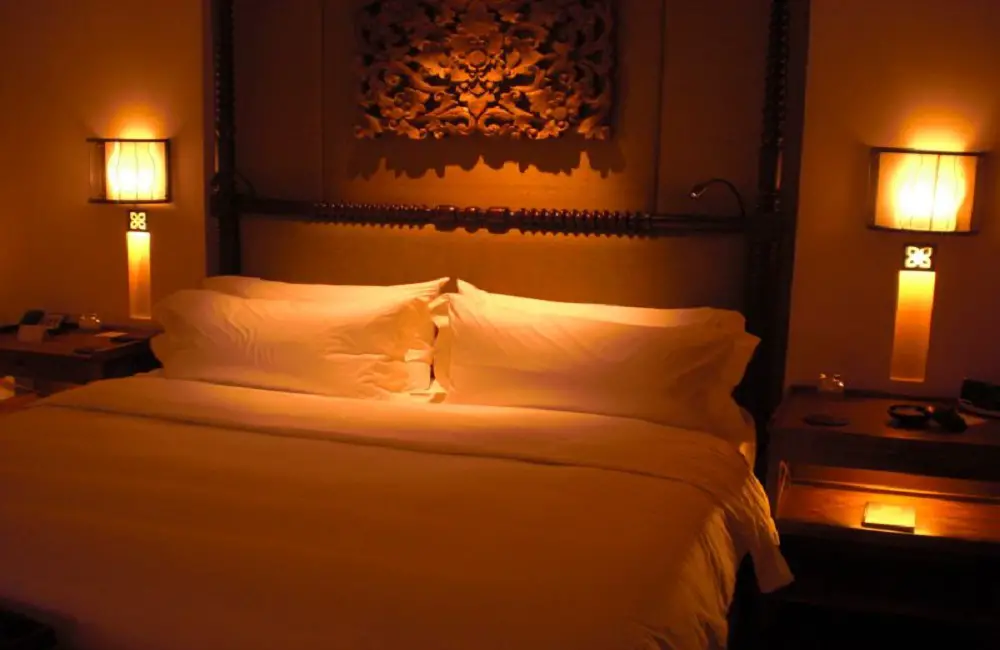Has there ever been a time when you’ve felt like your bedroom is an oven and you can’t sleep? A lot of us have been annoyed by a heated bedroom interfering with our sleep. It can impact our health and general well-being in addition to being uncomfortable.
Let’s look at the reasons behind your bedroom’s extreme heat at night and some useful advice for getting a good night’s sleep even in the most intense heat.
Understanding the Heat: Why Does It Happen?
There are several reasons why your bedroom turns into a sauna at night:
- Poor Ventilation: Inadequate airflow can trap heat inside, especially in smaller or poorly ventilated rooms.
- Insufficient Insulation: Poor insulation lets heat from the day linger into the night, making your bedroom feel warmer.
- Electronic Devices: Electronics like computers or TVs emit heat, contributing to the overall temperature in the room.
- Proximity to Sunlight: Bedrooms on the sunny side of the house absorb more heat during the day, taking longer to cool down.
- Bedding and Fabrics: Certain materials, like synthetic bedding or heavy curtains, can trap heat and make it difficult for your body to regulate temperature naturally.
Tips for Sleeping Comfortably in a Hot Bedroom
Managing a warm bedroom does not have to mean giving up on restless evenings. Here are some useful advice to keep you cool and improve your quality of sleep:
- Optimize Your Bedding: Choose lightweight, breathable bedding made from natural fibers like cotton or bamboo. These materials wick away moisture and promote airflow, keeping you cooler.
- Use Cooling Accessories: Consider using a cooling mattress pad or pillow. These products are designed to regulate your body temperature and provide a more comfortable sleep environment.
- Strategic Ventilation: Open windows and use fans to create cross ventilation. Position a fan near the window to draw cooler air inside during the evening.
- Block Out the Sun: Use blackout curtains or shades during the day to minimize heat absorption. This helps keep your bedroom cooler in the evening.
- Limit Electronics: Turn off electronic devices well before bedtime to reduce heat emission in the room.
- Cool Down Before Bed: Take a cool shower or bath before bedtime to lower your body temperature. This can signal to your body that it’s time to sleep.
- Hydrate Properly: Drink a glass of water before bed to stay hydrated, but avoid excessive fluids to prevent waking up due to bathroom trips.
- Create a Cross-Breeze: Position fans strategically to create a cross-breeze. Place one fan near a window to draw cool air in and another fan across the room to push hot air out.
- Sleeping Position Matters: Choose moisture-wicking, natural pajamas, and think about sleeping with your body in an air-vent urinated position.
- Use Cold Packs: Place a cold pack or a frozen water bottle wrapped in a towel at your feet or on your wrists to cool down quickly.
What Are The Risks of Sleeping In A Hot Bedroom At Night?
Numerous hazards and discomforts might arise from sleeping in a heated bedroom.
- Disrupted Sleep: Poor sleep quality might result from higher temperatures making it harder to fall asleep and stay asleep through the night.
- Dehydration: Warm weather can make you sweat a lot, which might induce dehydration if you don’t drink enough fluids.
- Increased Heart Rate: Your heart works harder to cool your body down in a hot environment, potentially increasing your heart rate during sleep.
- Heat Exhaustion or Heat Stroke:Severe heat-related disorders like heat exhaustion or heat stroke can occur from extended exposure to high temperatures. These are life-threatening medical crises.
- Skin Irritation: Sweating in a hot room can cause skin irritation and discomfort.
- Worsening of Respiratory Conditions: Hot and humid conditions can exacerbate respiratory issues such as asthma or allergies.
- Impact on Mental Alertness: Poor sleep due to heat can affect cognitive function, memory, and mood the following day.
It’s critical to maintain a cool, well-ventilated bedroom, use fans or air conditioning if available, drink enough of water, and wear lightweight, breathable bedding and sleepwear to reduce these hazards.
Conclusion
Your sleep quality doesn’t have to be compromised by a hot bedroom. You may create a more pleasant sleeping environment by comprehending the causes of the heat and putting these helpful suggestions into practice. Try out several tactics to see which one suits you the best. Remember that even as the outside temperature rises, you can still have a nice, restful night’s sleep.

